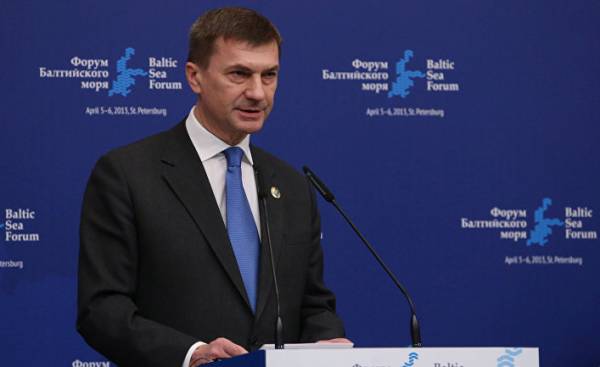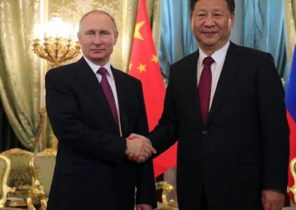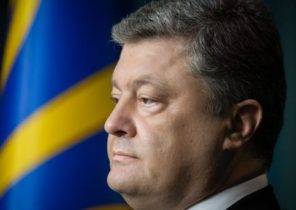
Vice-President of the Commission Andrus Ansip gave the newspaper Eesti Päevaleht interview, in which he spoke about his views on the work of the new government, cyber-security issues and events from a decade ago.
Eesti Päevaleht In April marks the tenth anniversary of the events of the Bronze night. You were the Prime Minister. The feeling with which you look back?
Andrus Ansip: last week (the week before that, as the interview took place on March 17 — approx.ed.) I was in Washington, and meetings at the Congress on the surprise once again were talking about cyber attacks on Estonia in 2007. After the attack on Internet-connected devices in America, which brought down a global services, the topic of cyber attacks has once again become relevant.
— Due to the fact that antiestonskie cyber attacks of 2007 was the first political attacks of this kind?
Yes. Then maybe someone tried to believe that we are talking about the protest of civil society, but now that naive people will not find it. The sense of danger now, of course, much stronger than in 2007. as for emotions, we did what had to be done, and the events in Crimea and Eastern Ukraine only confirms the correctness of this decision. In any case, it was correct to solve this problem when it has not yet developed into something more.
— Later you’ve pondered what really went well and it could be worse? I guess at that time, particularly time for reflection was not.
— Yes, the decision was balanced and unemotional. Some say his extreme surprise, but after all, we wouldn’t have to pull in Tallinn 780 additional officers, if not assumed possible negative scenario. Although, of course, compared to what happened in Ukraine, I think we’ve all went very well.
Aren’t we sometimes modest, despite the fact that in the field of information technology and Cybernetics in Europe and the world in General, thanks to their experience are, rather, leaders?
— Yes, we have something to say to the world. According to the index of the digital economy and society, Estonia is in first place in the EU in the field of digital services in the public sector, although in part we can say that this is a half-truth. If you say, for example, on electronic election, it makes no sense to compare what we have and what others do not. Our people are e-elections for the most part happy, so it looks strange when someone (the government — approx.ed.) begins to tear down the current system and sneaks up to it with an axe.
— Let’s talk about Estonia. How do you assess the present government?
— How quickly they come and cope with the stagnation. If we take data from Eurostat and economic growth for the last quarter, in comparison with the previous quarter economic growth in Estonia was the fastest of all EU countries: 1.9 percent. Wages rose by 7%, the current account surplus amounted to 2.7%. We have once again coped with the stagnation. Yesterday (March 16 — approx.ed.) was published the ranking of the favorable entrepreneurs of the countries, and — what a surprise! — Estonia was on the first place, followed by Sweden. So out of stagnation, we finally got out (with obvious irony in his voice — comm.ed.).
— And if without irony?
— Along with the fact that the coalition government approaches to e-Vibram, unanimously trying to destroy the image of e-government, and I do not understand the hurry with the withdrawal of state institutions from outside of Tallinn. For me it is rather simple: as they say, the two move equal one fire.
What is the ultimate goal? If the challenge was to effectively paralyze the current government, then Yes, moving might be a good tool. But I believe that such experiments over Estonia is a crime.
— It turns out the current government, in your estimation, doing bad experiments and the residual activity?
— I would not like to generalize. When I look at the life of Estonia from Brussels, you see that in fact her Affairs in order. From outside the country problems are not visible. As Estonia has been successful, and remains such. From a distance — be it Washington or Brussels — as the basis of the success of Estonia see, first of all, financial matters. Estonia still is among the hassle-free countries by the organization in the financial sector and small debt burden of the government sector. Second, the powerful image of Estonia as e-state. Third, our defense spending. Let me remind you that in NATO, only five of the countries participating in executing this its partners, is investing in the security of at least 2% of GDP. Estonia is among them, which, of course, extremely positive impact on its image. A small but diligent.
Regarding all of these started during the change of government talk about the Pro-Kremlin sentiment, when the Newspapers wrote that the reform Party writes the captions for the world press, there is nothing new. If Yana Toom says in an interview with the BBC that neither she nor most of the residents of Estonia do not support sanctions against Russia, in order to form this opinion, do not need any of the reform Party. Or if the government decides before the meeting of the Prime Ministers in Riga to paraphrase already agreed by officials the text of the joint communiqué, it is naive to believe that this doesn’t get out beyond the walls of the Cabinet and that it will not become public.
— What impression you have about the Ratas, looking from Brussels?
— How I came into contact with the jüri Ratas in Brussels, I can say that it well represents Estonia. Nice person with reasonable views. Estonia is consistent at least in terms of jüri Ratas and his speeches in Brussels. As far as I know.
— However, you are critical.
— Well, of course. I don’t like the uniform, simple, understandable and transparent taxation system just clean and focus on speed income tax. Conduct experiments with other types of taxes or at least irritate them people. Raise overnight rates of tax. I’m not without sin, but our decision about raising the sales tax to the alert, two days were taken during the crisis. But now, because allegedly, we have come out of stagnation, so why act as if the crisis in the country?
And the pension system, which was one of the most egalitarian in the EU context? It seems to me, is not an area where you can shoot from the hip.
When Hanno Pevkur was elected head of the reform Party, on the sidelines say, that how long is he in this chair is not delayed. “Before the elections to the Riigikogu shall elect a new Chairman. Ansip will return, will take its place and lead the reform Party to victory in elections”, — told some. What do you say?
— Oh, Yes. I never kicked, I quit. And announced ahead of time that I would not run in the next elections to the Riigikogu. Decided to run for election to the European Parliament and received more votes than anyone. I am very grateful to the people of Estonia for all these nine years and for supporting my candidacy in the elections to the European Parliament. I think in nine years I could give everything I had, and this was the reason for my departure. I can’t relate to the post of Prime Minister as a sporting event — who will last longer, so speculation of what I could before the election to the Riigikogu to resign from the European Commission, it is unreasonable. They have no logic. The reform Party is the leader. A good young leader.
(Published in abridged).







